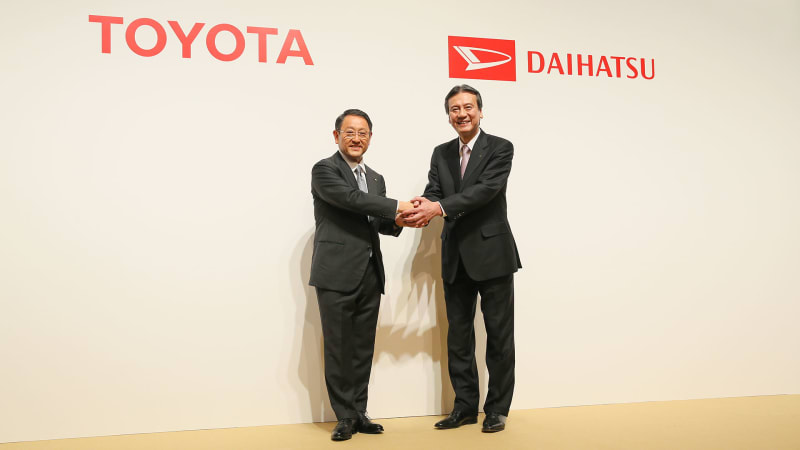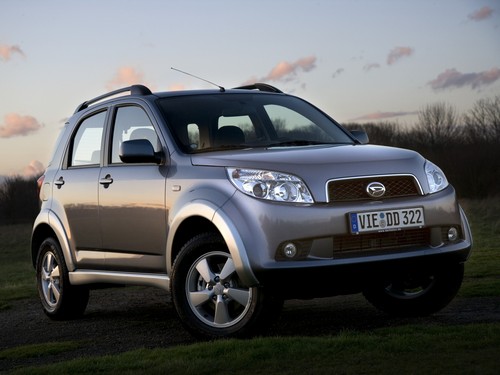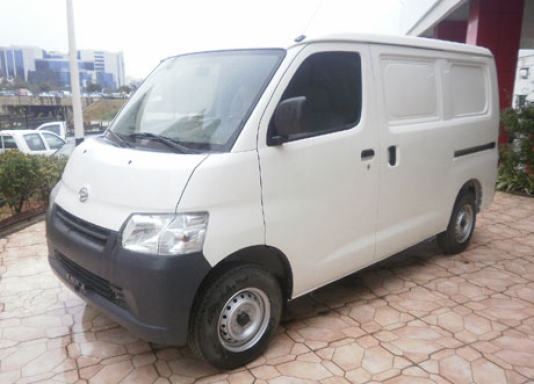Toyota buys Daihatsu for small-car development

Toyota is getting serious about small cars, but it's not going at it alone. Instead it's turning to its subsidiary Daihatsu, with which it will now share more resources and expertise. And in the process, it's acquiring the remaining stake in the smaller automaker.
Daihatsu is a Japanese carmaker founded in its present form in 1951, but with roots that trace back as far as 1907. Toyota acquired a controlling interest of 51 percent in Daihatsu in 1988, bringing the company under its umbrella. But now it is raising its stake to 100 percent by a reciprocal share-swap agreement that will see Daihatsu's other shareholders take 0.27 shares in the larger company for each share in the smaller.
As part of the new arrangement, the Daihatsu division will take the lead in developing new small cars, both for itself and for its parent company. Toyota in turn will also share key technologies with Daihatsu, and both will share each other's networks in emerging markets. The bottom line is that we can expect to see more small Toyotas and Scions developed and built by Daihatsu in the near future.
The Daihatsu name may not be as familiar to Americans as some of Toyota's other brands. It briefly sold models like the Charade and Rocky in the United States under its own name in the late 1980s and early 90s. However US customers may be more familiar with those it built for the Scion brand, such as the Scion xB that was based on the Daihatsu Materia. While the realistic part of our brains force us to admit it's unlikely, the dreamer within us will hold out hope that the new arrangement could see a Scion version of the nimble little Daihatsu Kopen roadster make its way to our shores in the coming years. Show full PR text Toyota and Daihatsu to Strengthen Small Car Operations through Unified Global Strategy
Toyota Motor Corporation (Toyota) and its subsidiary Daihatsu Motor Co., Ltd. (Daihatsu) have reached an agreement whereby Daihatsu will become a wholly-owned subsidiary of Toyota by way of a share exchange (expected to be completed in August 2016).
The purpose of the agreement is to develop of ever-better cars by adopting a unified strategy for the small car segment, under which both companies will be free to focus on their core competencies. Ultimately, this will help Daihatsu and Toyota to attain their joint goal of achieving sustainable growth.
Additionally, the aim of the share exchange is to enhance the value of both brands. Although Toyota and Daihatsu will engage in friendly competition and maintain separate management styles that capitalize on their respective capabilities, bringing the two together under a shared strategy will enable them to jointly overcome otherwise prohibitive obstacles in the future, including resource-intensive undertakings such as the development of next-generation technologies and entry into business areas with growth potential.
Explaining the decision, Toyota President Akio Toyoda said, "This is an opportunity for us both to stop feeling that we need to go it alone, and trust each other to take full advantage of our respective strengths. In other words, we can now focus on our core competencies. That, I believe, is the key to achieving and sustaining global competitiveness."
Daihatsu President Masanori Mitsui commented, "I believe we have now found a course of action that will enable us to continue our growth for the next 100 years. We see this as the perfect opportunity to cement our relationship with Toyota, and, by doing so, to embark on a new period of growth, and to elevate the Daihatsu brand to a global standard."
The key details of the agreement are as follows:
Objective
Under a joint strategy, Toyota and Daihatsu intend to combine their bases of operations in addition to sharing their respective areas of proficiency and technical expertise. This will leverage the advantages of both brands, allowing the development of attractive products that are competitive on a global basis.
Areas of strategic collaboration
a) Small cars
The differentiation between Toyota's and Daihatsu's brands will continue, and the product lineups of both will be optimized in accordance with customer preferences, with Daihatsu taking the lead in developing products offered within the small car lineups of both brands. At the same time, Daihatsu will continue to focus on developing vehicles aimed specifically at customers in the areas in which the brand already has a strong presence, while also honing its expertise and processes related to product planning and technological development for minivehicles.
b) Technology
Both companies will share development and deployment strategies for new technologies from the initial conceptual stages. Toyota's focus will remain on technologies related to the environment, safety, user experience, and comfort, while Daihatsu will continue to leverage its aptitude for turning technologies into packages for vehicles, as well as developing cost- and fuel-efficient technologies. Daihatsu will also contribute to the development of next-generation technologies from the perspective of cost-efficiency and miniaturization. The company's specialized car manufacturing expertise will be shared within the Toyota Group, which will contribute to further enhancing the cost competitiveness of larger vehicles.
c) Operations
Both companies will utilize each other's bases of operations in emerging markets. Daihatsu will take the lead in enhancing efficiency and adaptability in development, procurement, and production processes.
Within Japan, Toyota's sales expertise and infrastructure will be utilized by both companies to improve Daihatsu's branding and profitability.
Outline of the share exchange
1. Timeline of the Share Exchange Resolution of the board of directors regarding the execution of the Share Exchange Agreement (Both companies) January 29, 2016 Execution of the Share Exchange Agreement (Both companies) January 29, 2016 Record date for the annual general meeting of shareholders to approve the Share Exchange (Daihatsu) March 31, 2016 Annual general meeting of shareholders to approve the execution of the Share Exchange Agreement (Daihatsu) End of June Last day of trading (Daihatsu) July 26, 2016 (planned) Delisting (Daihatsu) July 27, 2016 (planned) Scheduled date of consummation of the Share Exchange (effective date) August 1, 2016
Notes:
- Toyota will consummate the Share Exchange by means of a "simple share exchange" under Article 796, Paragraph 2 of the Companies Act, which does not require approval by shareholders at a shareholders' meeting.
- The expected date of consummation of the Share Exchange (effective date) is subject to change by mutual agreement between Toyota and Daihatsu.
2. Details of Allotment in the Share Exchange Toyota
(100% Parent Company) Daihatsu
(Wholly-owned subsidiary) Allotment ratio for the Share Exchange 1 0.26 Number of shares to be delivered in the Share Exchange Common Stock54,035,654 shares (expected)
Note: 0.26 shares of common stock of Toyota will be allotted and delivered for each share of common stock of Daihatsu.
Source






